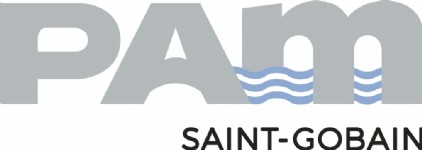Saint-Gobain Seals Group’s Custom OmniSeal® Spring-Energized Seals Installed in Environmentally-Friendly Industrial Dyeing Machines
The Saint-Gobain Omni Seal
Textile environmental safety and control has attracted the attention of the textiles industry, rising in recent years, especially in Asia where much of the world’s textile dyeing occurs, due to the massive amount of water required in these processes per day. Temperature and time management are two key factors in dyeing where water is used to clean equipment, as cooling waters, and for rinsing and processing dyes and products. It is estimated that on average, almost 100 liters of water is used to process only 1 kg of textile goods, making water utilization a prime concern for the industry. Furthermore, wastewater carries a host of different chemicals from the processing of dyes and The World Bank estimates that 17 to 20 percent of industrial water pollution comes from textile dyeing and treatment (a fifth of the world’s industrial water pollution). Humans then ingest the contaminated water or food irrigated by the water.
Saint-Gobain Seals Group was approached by DyeCoo to find a solution to seal CO2 under high pressuresfor up to 400 bars and temperatures up to 120 degrees C, which poses a major challenge for ordinary seals. In most cases, seals will fail when exposed to extreme conditions such as high pressure which cause their applications and products to fail.
Using their OmniSeal® product, a spring-energized seal technology, Saint-Gobain Seals Group engineers developed a custom version where the seal jacket is manufactured from Fluoroloy®, a Seals Group’s proprietary PTFE compound, and features a special formed spring to activate the seal. These custom seals are used on the doors of the industrial dye machines and prevents the growing extrusion gap whenever the vessel gains pressure, essentially solving big tolerance issues due to the high pressure. Rigorous testing confirmed that the OmniSeal® solution produced optimum results and DyeCoo is currently using this robust solution in all of their machines. Notable companies such as Nike and Adidas have taken note of this more sustainable option and have sold clothing that were made of fabric dyed in these environmentally-friendly machines. IKEA GreenTech, an IKEA Group venture capital company, has also invested an undisclosed sum in the Dutch dyeing equipment company. By using this sealing solution, DyeCoo has been able to continue their mission of contributing to a sustainable environment in terms of water consumption, energy consumption, CO2 emissions and waste disposal.
The above custom solution demonstrates Saint- Gobain Seals Group’s business model in which they focus on co-development relationships, engineer-to engineer direct collaboration and more than 93% of their products are custom engineered to the customers’ applications.
PAM Saint-Gobain
Tel: 0115 930 5000www
saint-gobain-pam.co.uk

| Telephone: | 0115 930 5000 |
| Email: | sales.uk.pam@saint-gobain.com |
| Website: | www.pamline.co.uk |
| More information on the Saint Gobain PAM UK Ltd BVAA Member Directory Page |
Search related articles: Saint Gobain PAM UK LtdIssue 27Seals













